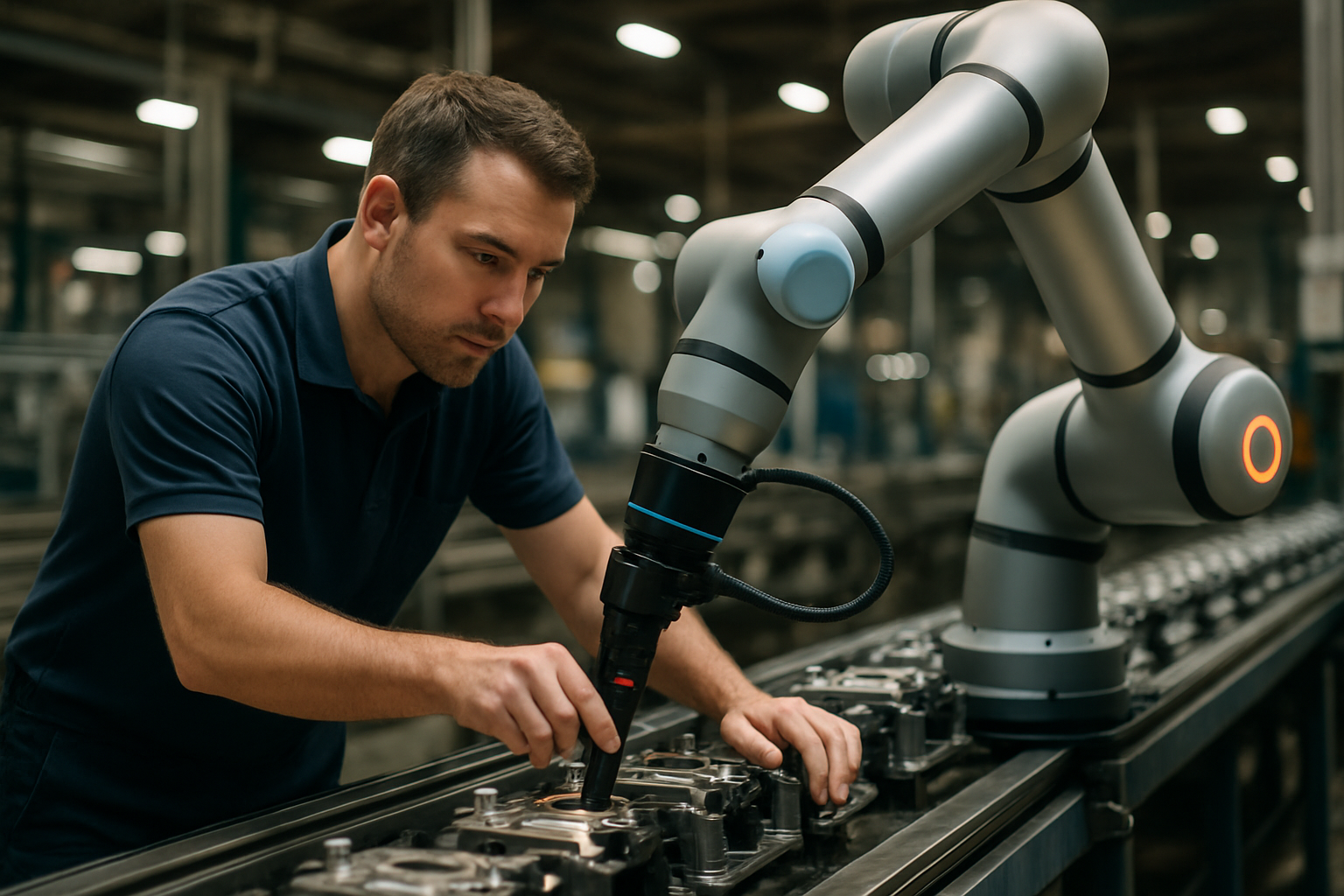Modular Manufacturing: Reshaping Production Paradigms
Modular manufacturing is revolutionizing industrial production, offering unprecedented flexibility and efficiency. This innovative approach breaks down complex manufacturing processes into standardized, interchangeable units, allowing for rapid reconfiguration and scalability. As businesses face increasing demands for customization and shorter product lifecycles, modular manufacturing emerges as a game-changing solution, promising to transform traditional production models and redefine competitive advantage in the global marketplace.

In the 1980s and 1990s, manufacturers started experimenting with modular production lines, seeking ways to increase flexibility without sacrificing efficiency. This period saw the emergence of reconfigurable manufacturing systems (RMS), which laid the groundwork for today’s modular manufacturing paradigms. The advent of advanced robotics, artificial intelligence, and the Internet of Things (IoT) in the 21st century has further accelerated the development and adoption of modular manufacturing techniques.
Core Principles of Modular Manufacturing
Modular manufacturing is built on several key principles that distinguish it from traditional production methods:
Standardization and Interchangeability
At the heart of modular manufacturing is the concept of standardization. Production processes are broken down into discrete, standardized modules that can be easily interchanged or reconfigured. This standardization extends to both hardware and software components, enabling seamless integration and rapid adaptation to changing production requirements.
Scalability and Flexibility
Modular systems are inherently scalable, allowing manufacturers to easily expand or contract production capacity in response to market demands. This flexibility is particularly valuable in industries with volatile demand patterns or those requiring frequent product changeovers.
Rapid Reconfiguration
Unlike traditional fixed production lines, modular manufacturing systems can be quickly reconfigured to accommodate new products or processes. This capability dramatically reduces retooling time and costs, enabling manufacturers to respond swiftly to market changes or customer demands.
Decentralized Control
Modular manufacturing often employs decentralized control systems, with each module capable of autonomous operation. This distributed intelligence enhances system resilience and facilitates easier integration of new modules or technologies.
Advantages and Implementation Challenges
The adoption of modular manufacturing offers numerous benefits, including increased production flexibility, reduced time-to-market for new products, and improved resource utilization. However, implementing modular manufacturing systems also presents several challenges that organizations must navigate.
Enhanced Adaptability and Responsiveness
Modular manufacturing allows companies to quickly adapt to changing market conditions and customer preferences. By reconfiguring production modules, manufacturers can switch between product variants or introduce entirely new products with minimal disruption to ongoing operations. This adaptability is particularly valuable in industries characterized by rapid innovation cycles or seasonal demand fluctuations.
Cost Efficiency and Resource Optimization
While the initial investment in modular manufacturing systems can be significant, the long-term cost benefits are substantial. The ability to reuse and reconfigure modules reduces the need for dedicated production lines for each product variant. Additionally, modular systems often lead to improved resource utilization, as modules can be easily reassigned or repurposed as needed.
Implementation Hurdles
Despite its potential, implementing modular manufacturing requires careful planning and execution. Organizations must overcome several challenges:
-
Initial investment: The upfront costs of transitioning to modular manufacturing can be substantial, requiring careful financial planning and ROI analysis.
-
Standardization efforts: Developing standardized modules and interfaces across diverse production processes can be complex and time-consuming.
-
Workforce adaptation: Employees need to be trained in new skills and workflows associated with modular manufacturing systems.
-
Integration with existing systems: Ensuring seamless integration between modular components and legacy systems can present technical challenges.
Case Studies: Modular Manufacturing in Action
Several leading manufacturers have successfully implemented modular manufacturing principles, demonstrating the tangible benefits of this approach.
Automotive Industry Pioneer
A major European automaker has adopted a modular manufacturing strategy for its electric vehicle production. By using standardized battery and drivetrain modules across multiple vehicle models, the company has significantly reduced development time and production costs. This approach has enabled the automaker to rapidly expand its electric vehicle lineup while maintaining competitive pricing.
Pharmaceutical Flexibility
A global pharmaceutical company has implemented modular manufacturing in its drug production facilities. By using standardized, self-contained production modules, the company can quickly switch between different drug formulations or scale production up or down as needed. This flexibility has proven particularly valuable in responding to sudden demand spikes for critical medications during public health crises.
Future Trends and Implications
As technology continues to evolve, modular manufacturing is poised for further advancement and wider adoption across industries. Several trends are likely to shape the future of modular manufacturing:
Advanced Materials and 3D Printing
The development of new materials and advancements in 3D printing technology will enable the creation of more complex and versatile manufacturing modules. This could lead to even greater flexibility in production processes and open up new possibilities for customization.
AI-Driven Optimization
Artificial intelligence and machine learning algorithms will play an increasingly important role in optimizing modular manufacturing systems. These technologies will enable real-time reconfiguration of production modules based on demand forecasts, resource availability, and other factors.
Collaborative Robotics
The integration of collaborative robots (cobots) into modular manufacturing systems will enhance human-machine interaction, leading to more efficient and flexible production processes. Cobots can be easily reprogrammed and redeployed across different modules, further increasing system adaptability.
Key Strategies for Successful Modular Manufacturing Implementation
• Conduct a thorough assessment of current production processes to identify opportunities for modularization.
• Invest in standardization efforts to ensure compatibility across modules and systems.
• Develop a phased implementation plan to gradually transition to modular manufacturing.
• Prioritize employee training and change management to ensure smooth adoption of new processes.
• Leverage data analytics to continuously optimize modular manufacturing systems and identify areas for improvement.
In conclusion, modular manufacturing represents a paradigm shift in industrial production, offering unprecedented flexibility, efficiency, and adaptability. As businesses navigate an increasingly complex and dynamic global marketplace, the principles of modular manufacturing provide a powerful framework for maintaining competitiveness and driving innovation. While challenges remain in implementation, the potential benefits of modular manufacturing make it a critical consideration for forward-thinking manufacturers across industries.





